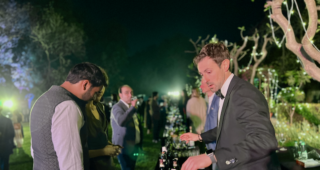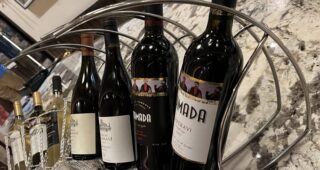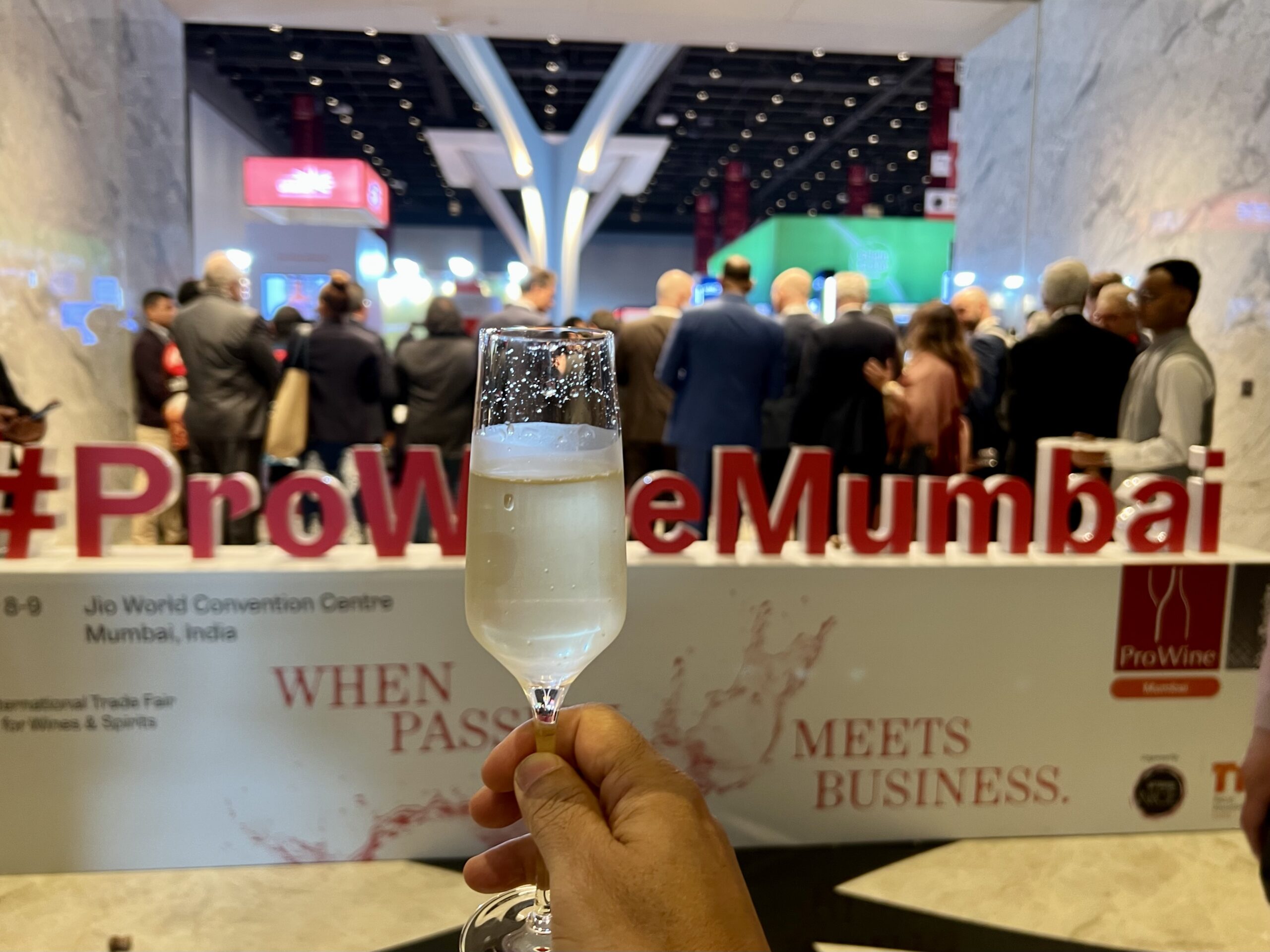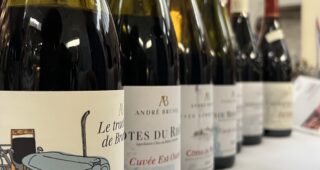
If you have had more than a fleeting encounter with Australian wines, chances are that you would not have been untouched by the Hardys name. Adjudged the seventh most powerful wine brand in the world according to “The Power 100 report 2015” by Intangible Business, Hardys is Australia’s biggest wine producer identified largely with easy drinking and affordable wines. But there’s more to Hardys than just approachable wines. It has a vast repertoire that honours their founding fathers as also the terroirs from where their wines originate. And I had a priceless opportunity to converse about these wines with none other than William (Bill) Hardy who was on his second all time visit to India towards the end of August 2015.
Bill, a fifth generation member of this wine family arrived as Hardys Brand Ambassador to launch his eponymous “William Hardy Collection”- a range that honours his contribution towards the family business. The meeting was at the initiative of Prarrthona Pal Chowdhury- the livewire Head Marketing, Brandy Project and International Brands at Sula wines- Hardys importers in India.

The interview took place immediately after a wine masterclass by Bill Hardy at ITC Maurya- a premier property of the ITC conglomerate of India. We promptly took our seats within the same precincts for this stimulating conversation:
Me: Welcome to India Mr Hardy and congratulations on the launch of the William Hardy collection.
Bill Hardy (BH): Thank you! It is indeed my pleasure being here to introduce the new label here with all humility.
Me: Hardys winemaking philosophy is generally recognized as being centered towards blending cuvées from your vineyards in different regions, does that mean that emphasis on terroir takes a back seat for you ?
BH : Not entirely ! Though our easy drinking daily wines may be inclined towards blending for the sake of a consistent wine style, we also have certain wines that bring out respective regions quite emphatically. A classic example would be one of our top wines- the HRB (Heritage Reserve Bin) which includes cuvées from two to three distinct regions. I remember James Halliday (Australian wine writer and critic) tasting these wines for the first time and saying “I can see the exact terroirs associated with this wine!” I consider myself a champion of blending and believe that this is one of the greatest skills a winemaker can have. It often happens that once a winemaker is through with making some great wines from individual parcels, he sits back and asks himself ‘this is nice, but can I make something even better by putting some of these wines together ?’ And there comes the art of blending into play. There is a beautiful quote by Hugh Johnson- “Dom Perignon was the first deliberate blender. Also the first perfectionist”.

Me : With relevance to the Indian market, do you see competition coming the Aussie wines’ way in the event of the proposed Free Trade Agreement between India and the European Union (EU) that is likely to soften trade barriers on wine from EU.
BH : Firstly I am positive that if any such agreement favourable to the wine trade is worked out, it will not be implemented selectively by the Indian government for different trading zones. But if it happens otherwise and if the same level of duty cuts are affected on high value as well as daily drinking wines from EU then it would indeed be serious competition to Aussie wines, as Australia is the biggest volume exporter of wine to India.
Me : The Hardys portfolio has a vast range of wines. How does a consumer differentiate between similar varietal blends across these ranges ? For example, how does one differentiate between Eileen Hardy Shiraz (named after Bill’s grandmother) from the now launched William Hardy Shiraz ?
BH : We have consistently made an effort towards educating the consumer on our different wines. I am quite proud of having elaborated on these wines through personal writings on the philosophy, style and characteristics of each wine. I also love to present our wines to people, highlighting the USPs of each range so that they understand as to why they should be paying more for a particular wine vis-à-vis a lower priced one.
Coming to your specific query, the essential difference between the Eileen Hardy Shiraz and the William Hardy Shiraz is that while Eileen Hardy range is an example of the very best of wines we make, William Hardy range is a more commercial wine. Both these wines are single varietal single region wines with Eileen Hardy Shiraz being produced from 2-3 selected vineyards in McLaren Vale. Compared to this, William Hardy Shiraz currently comes from vineyards in Langhorne Creek with subsequent plan to shift the sourcing for this range to McLaren Vale as well. In terms of ageing potential, while Eileen Hardy Shiraz comes from vines upto 110 years old and has an ageing potential between 12-15 years, William Hardy Shiraz can currently be aged upto 5-7 years. In short you can say that while Eileen Hardy is our Prestige range, William Hardy range is growing to be one.
(Prarrthona signals me to hurry-up as Bill has to leave for the next engagement- a dinner featuring the William Hardy Collection where I am also invited).
Me : How does your marketing plan look like in India ? Specially with reference to another competing Aussie brand Jacob’s Creek that seems to have an ostensible advantage of leveraging on the Spirits brands in the Pernod Ricard portfolio .
BH : I do agree that Pernod Ricard have managed their marketing well through well placed sports sponsorships and leveraging their Spirits brands for wine promotion. At Hardys our focus is on spending our dollars on opening and sharing wine bottles rather than spending big time on advertisments. As for sponsorships and endorsements, we may have faltered earlier by spreading ourselves too thin, but in the present day we are very much focussed on the subject. A good example of this is the recent launch of the Art of Cricket collection with Glenn McGrath as the brand ambassador, which has magnified awareness of our brand amongst the target consumer.
Me : A last question on the personal front. Since you are here with Mrs Hardy, are you visiting the Taj Mahal ?
BH : Certainly ! As a matter of fact we are doing a tour of the “golden triangle” (Delhi-Agra-Jaipur) starting tomorrow. We have been looking forward to it.

Raising a toast with the man himself and his eponymous wine- William Hardy Chardonnay.
* This interview was published as a narrative in vino india.










1 Comment